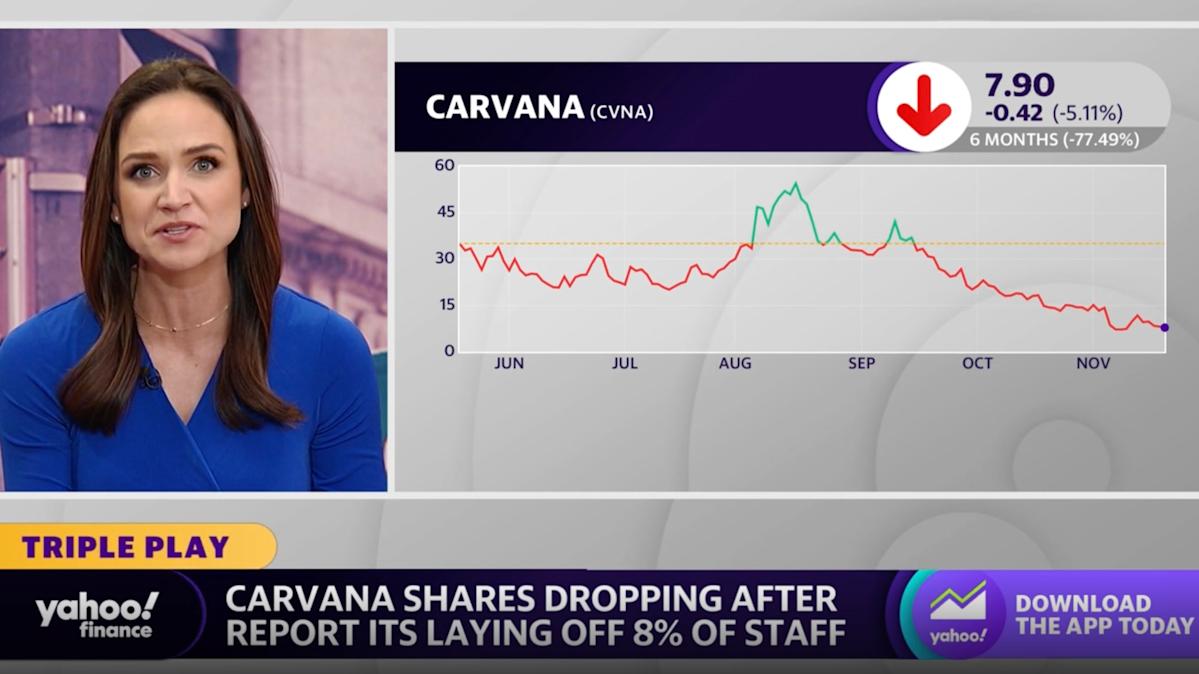Layoff Reversal: How To Respond When Your Old Company Recruits You

Table of Contents
Evaluating the Offer: Weighing the Pros and Cons
A layoff reversal offers a unique opportunity, but it's crucial to approach it with careful consideration. Weighing the pros and cons objectively is essential to determine if returning to your former employer is the best decision for your career trajectory.
Reasons to Consider a Layoff Reversal:
Returning to a familiar environment can offer several advantages:
- Familiar Environment and Colleagues: You already know the company culture, the workflow, and many of your colleagues. This familiarity can significantly reduce the stress and adjustment period associated with starting a new job.
- Established Relationships and Understanding of Company Culture: Pre-existing relationships with managers and colleagues can translate to faster integration and smoother collaboration. You'll already understand the company's unspoken rules and communication styles.
- Potential for Faster Career Progression (if applicable): Depending on the circumstances of your layoff and the company's current situation, a layoff reversal might offer a quicker path to promotion or other career advancements.
- Reduced Onboarding Time and Immediate Contribution: You’ll likely bypass the lengthy onboarding process, allowing you to contribute meaningfully from day one. Your existing knowledge and experience will be immediately valuable.
- Salary and Benefits Package (compare with current/previous offers): Carefully compare the offered salary and benefits package with other job offers you may have received or are currently considering. Don't hesitate to negotiate.
Reasons to Decline a Layoff Reversal:
Despite the initial appeal, there are several reasons why a layoff reversal might not be the best option:
- Underlying Reasons for the Layoff Still Exist (company instability): If the reasons for your layoff haven't been addressed – such as company restructuring or financial instability – accepting the offer could put you at risk of another layoff in the future.
- Limited Growth Opportunities or Career Advancement Prospects: Assess whether the company offers a clear path for career progression. If growth opportunities are limited, it might be worth exploring other options with better potential.
- Toxic Work Environment or Unresolved Conflicts: If you left due to a negative work environment or unresolved conflicts, returning might exacerbate these issues. Prioritize your well-being and consider whether the situation has genuinely improved.
- Better Opportunities Available Elsewhere (consider salary, benefits, role): Consider the entire package: salary, benefits, career prospects, and overall job satisfaction. A layoff reversal may not be the best offer compared to other opportunities available.
- Desire for a Fresh Start and New Challenges: Sometimes, a layoff can be a catalyst for positive change, offering the chance to explore new industries, roles, or companies that better align with your career goals.
Negotiating Your Return: Securing a Better Deal
Don't assume the initial offer is the best you can get. A layoff reversal provides a unique opportunity to renegotiate terms.
Salary and Benefits Negotiation:
Use your leverage effectively to secure a favorable package:
- Research Current Market Rates for Your Role and Experience: Use online resources like Glassdoor or Salary.com to understand the current market value for your skills and experience.
- Highlight Your Skills and Accomplishments Since the Layoff: If you've gained new skills or taken on additional projects since your layoff, be sure to highlight these accomplishments to justify a higher salary or improved benefits.
- Don't Be Afraid to Negotiate Salary, Benefits, and Title: Negotiation is a standard part of the job search process. Be confident and assertive when advocating for what you deserve.
- Consider a Signing Bonus to Compensate for the Initial Layoff: A signing bonus can act as compensation for the disruption and uncertainty caused by the initial layoff.
Addressing Concerns and Setting Expectations:
Open communication is crucial to ensure a successful return:
- Discuss the Reasons Behind the Layoff and Seek Reassurances About Job Security: Understand why you were laid off in the first place and receive clear assurances that the situation has been resolved and your job is secure.
- Clarify Your Role, Responsibilities, and Career Progression Path Within the Company: Ensure a clear understanding of your role, responsibilities, and potential for future advancement.
- Negotiate a Clear Exit Strategy if Things Don't Work Out as Expected: Having a clear exit strategy can provide peace of mind and protect your interests if the situation doesn't improve.
Protecting Yourself Legally: Understanding Your Rights
Before accepting a layoff reversal, ensure you understand your legal rights and obligations.
Reviewing Your Severance Agreement:
Carefully examine any agreements made during your layoff:
- Understand the Terms of Your Severance Package and Any Non-Compete Clauses: Review your severance agreement meticulously to understand its implications for your new employment.
- Consult With a Legal Professional if Needed: Don't hesitate to seek legal advice if you have any concerns or questions about your severance agreement or the new offer.
- Ensure the New Offer Doesn't Violate Previous Agreements: Make sure the terms of your new employment don't conflict with any existing agreements, such as non-compete clauses or confidentiality agreements.
Documenting Everything:
Maintain clear records of all communications:
- Keep Records of All Communications (emails, letters, meeting notes): Maintain a comprehensive record of all communications related to the layoff reversal process.
- Maintain a Copy of the New Offer Letter and Any Negotiated Agreements: Keep copies of all offer letters and any agreements reached during the negotiation process.
Conclusion
A layoff reversal presents a unique career crossroads. Carefully evaluating the offer, negotiating favorable terms, and protecting your legal rights are crucial steps in determining whether returning to your former employer is the right path. By weighing the pros and cons, addressing your concerns directly, and understanding your legal position, you can make an informed decision about whether a layoff reversal is the right choice for your career. Don't hesitate to seek professional guidance if needed. Remember, a thoughtful approach to a layoff reversal can lead to a successful and rewarding return—or a clear path toward even better opportunities. Are you facing a layoff reversal? Let's discuss your options and help you navigate this crucial career decision! Keywords: Layoff reversal, job offer negotiation, career advice, return to work decision, former employer.

Featured Posts
-
 Ajaxs Brobbey A Formidable Force In The Europa League
Apr 26, 2025
Ajaxs Brobbey A Formidable Force In The Europa League
Apr 26, 2025 -
 Look Ahead Planning Your April With Indie Bookstore Day Dutch Kings Day And Tumbleweeds Film Fest
Apr 26, 2025
Look Ahead Planning Your April With Indie Bookstore Day Dutch Kings Day And Tumbleweeds Film Fest
Apr 26, 2025 -
 Dave Portnoys Criticism Of California Governor Newsom
Apr 26, 2025
Dave Portnoys Criticism Of California Governor Newsom
Apr 26, 2025 -
 Justice Department Seeks Seven Year Prison Term For Congressman George Santos
Apr 26, 2025
Justice Department Seeks Seven Year Prison Term For Congressman George Santos
Apr 26, 2025 -
 Chelsea Handler Reveals Why She Avoided A Date With Andrew Cuomo
Apr 26, 2025
Chelsea Handler Reveals Why She Avoided A Date With Andrew Cuomo
Apr 26, 2025
